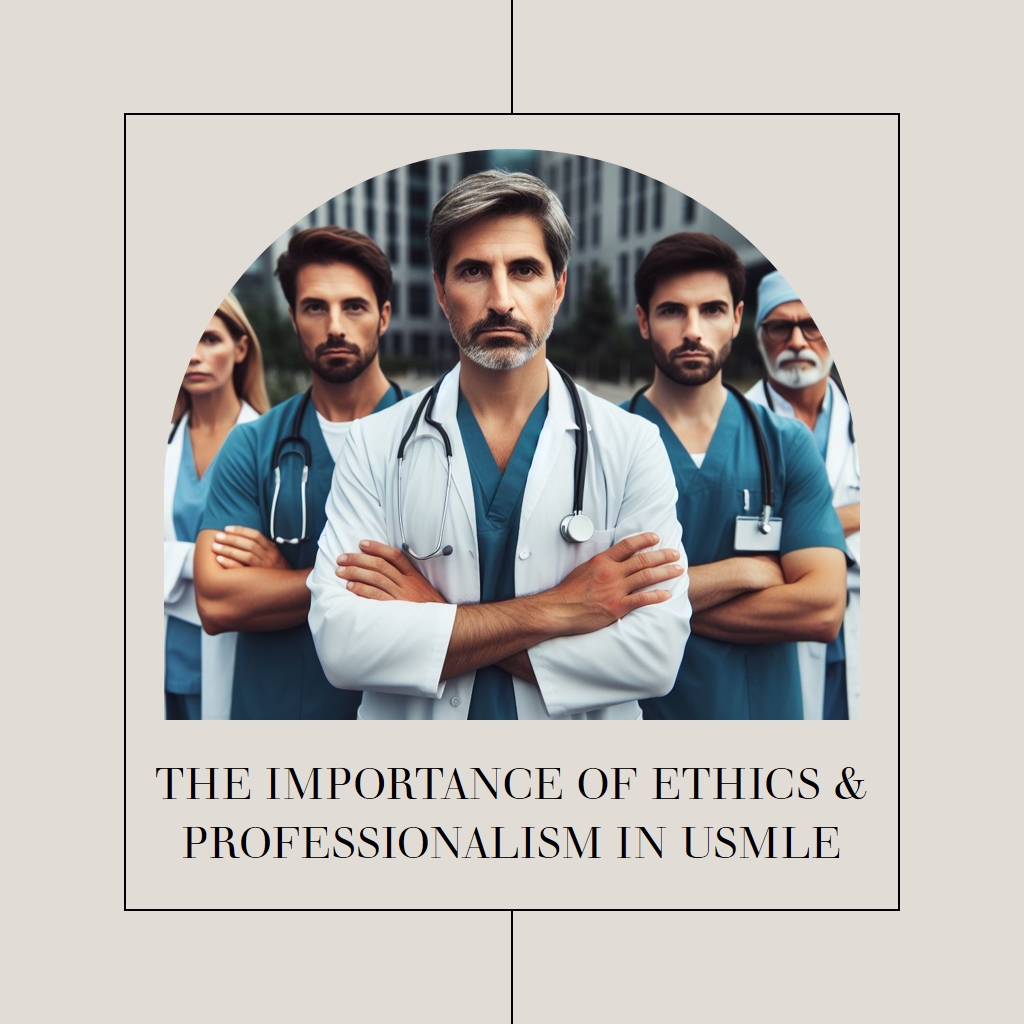Ethics and professionalism are essential aspects of medical practice that every aspiring physician should learn and uphold. They are also important topics that are tested in the USMLE Step 1 exam, which is a crucial milestone for medical students who want to pursue a residency in the United States. In this article, we will discuss why ethics and professionalism matter in USMLE Step 1 preparation, what are the ethical principles for medical practice, what are the key ethical and professional topics tested, how to develop ethical skills during medical school training, and what are the resources to help USMLE students build ethical and professional competence.
Ethical Principles for Medical Practice
One of the foundations of medical ethics is the Hippocratic Oath, which is a pledge that physicians make to uphold certain ethical standards and duties. The Hippocratic Oath includes four main principles that guide medical practice:
- Beneficence and Nonmaleficence:
Physicians must prioritize patients’ well-being, minimizing harm by carefully assessing the benefits. And risks of interventions to select the most suitable and effective option for each individual.
- Autonomy and Informed Consent:
Physicians must honor patients’ autonomy by respecting their right to make informed decisions about health and treatment, ensuring comprehensive disclosure of diagnosis, prognosis, treatment details, risks, alternatives, and costs, and securing explicit consent before any intervention.
- Professionalism in Medicine:
Physicians must uphold the utmost standards of competence, integrity, honesty, accountability, confidentiality, and respect in all interactions. While continuously updating their knowledge, adhering to professional ethics, and seeking assistance when necessary.
- Confidentiality and Privacy of Patient Information:
Medical Students must safeguard patients’ personal and medical details, sharing information only with those directly involved in care or with a legitimate need, and always with patient consent or as mandated by law.
Key Ethical and Professional Topics Tested
The USMLE Step 1 exam assesses the basic science knowledge and concepts that are relevant to the practice of medicine. Among the various topics covered in the exam, some specifically test the ethical and professional skills and attitudes of examinees. These topics include:
- Patient Confidentiality:
Physicians are ethically bound to maintain patient confidentiality, requiring them to make decisions on disclosure based on scenarios like patient age, communicable diseases, legal involvement, or patient record access requests.
- Informed Consent:
Obtaining informed consent involves securing the patient’s permission for medical intervention after ensuring they comprehend the information provided. With considerations for exceptions like unconsciousness or incompetency.
- Beneficence:
The principle involves prioritizing patient well-being, requiring the examinee to navigate scenarios. By considering options’ benefits and harms, patient preferences, values, and available resources and evidence.
- Medical Ethics:
Applying ethical principles to medical scenarios involves identifying and resolving dilemmas, such as conflicts between patient wishes and physician duties. Patient rights and public interest, or physician values and professional norms, are often presented in exams focusing on medical practice.
Developing Ethical Skills During Medical School Training
Ethical and professional skills are acquired and refined through education and experience rather than being inherent. Medical students have the opportunity to cultivate and improve these skills during their medical school training by participating in diverse activities and seizing opportunities. Enrich your ethical skills by considering a USMLE Step 1 Prep Course, benefiting from the guidance of USMLE experts, and receiving professional insights. Medical students can develop and enhance their ethical skills during their medical school training by engaging in various activities and opportunities, such as:
- Clinical Rotations and Clinical Clerkships:
During clinical rotations and clerkships, medical students gain practical experience by observing and interacting with patients and healthcare professionals, applying ethical principles, honing communication skills, and receiving mentorship.
- Curricular Activities and Simulations:
The medical school curriculum incorporates diverse activities and simulations, such as lectures, seminars, workshops, case studies, role plays, debates, quizzes, exams, and portfolios, to teach and assess medical students’ ethical and professional competencies, fostering the acquisition and reinforcement of ethical concepts and skills.
- Standardized patients and role-playing scenarios:
Using actors or volunteers to simulate patients or situations, medical students practice ethical and professional skills in a controlled environment, gaining valuable experience, feedback, and evaluation.
Resources to Help USMLE Students Build Ethical and Professional Competence
Medical students who are preparing for the USMLE Step 1 exam can benefit from various resources that can help them build their ethical and professional competence and confidence. Some of these resources are:
- Programs and Workshops:
Medical schools, associations, and organizations organize events and sessions to educate medical students and physicians on ethics, professionalism, communication skills, cultural competence, patient safety, and leadership through programs and workshops, fostering networking and mentoring opportunities.
- Academic Support Services:
Medical students have access to a range of academic support services, including tutoring, counseling, mentoring, and study groups, designed to enhance their knowledge, skills, and overall well-being.
- Online Forums and Discussion Boards:
Online platforms, hosted and moderated by websites, blogs, or social media, offer medical students and physicians a collaborative space to discuss ethics and professionalism, providing diverse perspectives, valuable resources, and a supportive environment.
Conclusion
Ethics and professionalism are important aspects of medical practice that every aspiring physician should learn and uphold. They are also important topics that are tested in the USMLE Step 1 exam, which is a crucial milestone for medical students who want to pursue a residency in the United States. Medical students can prepare for the USMLE Step 1 exam by understanding the ethical principles for medical practice, knowing the key ethical and professional topics tested, developing their ethical skills during their medical school training, and using the resources that can help them build their ethical and professional competence. By doing so, medical students can not only ace the USMLE Step 1 exam but also become ethical and professional physicians who can provide quality and compassionate care to their patients and society.
For more blogs keep visiting Soul Struggles.
